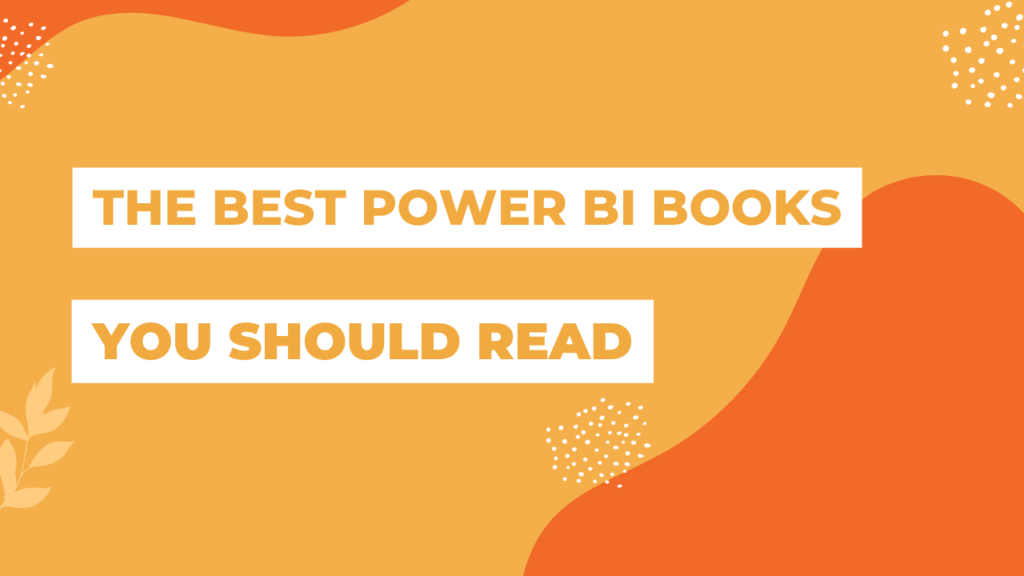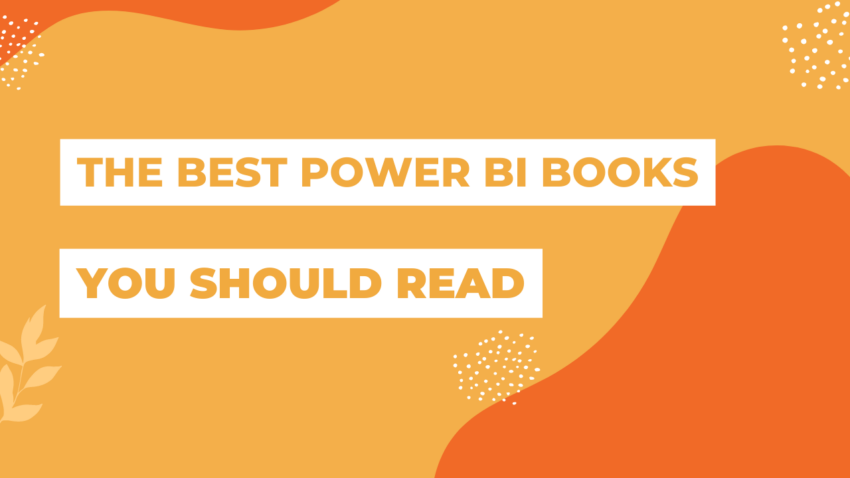
As Power BI developers, you’re involved in many phases of a data project. Including but not limited to building data pipelines, data models, metrics and measures development, and data visualizations. You’re required to have skills in different areas. And that can be tough to keep up. Although there are already resources online such YouTube videos and online courses, you can’t ignore great books that also give you knowledge in depth.
Here’s a list of books I’ve read and still use to develop my skills as a Power BI developer. These not only help with your Power BI skills but also with other generalized skills such as data visualization, data modeling, and data engineering. Expanding your skills within and beyond Power BI helps you get your careers many steps further.
The Definitive Guide to DAX

This book is written by SQLBI, which, by the way, is the best resource for learning and skilling up your Power BI game. I’d say some of their resources is suitable for intermediate-to-advanced users, however, this book is great for everyone because it teaches you all the DAX concepts one by one, step by step.
It may be a little intimidating at first because there is A LOT in the book. But what you know is that DAX starts with you understanding its unique concepts. Unlike other general purpose programming languages, you can’t master DAX with only trials and errors.
This book helps digest important concepts in DAX that you need to learn to advance your skills. If I had to pick only one book on Power BI, I’d pick this book.
Analyzing Data with Power BI and Power Pivot for Excel

This is a great introductory book for those who’re working with Power BI or Power Pivot in Excel, but have not yet thought about how best to model data. This book is focused on data modeling and best practices around it. The book doesn’t teach data modeling concepts in a generic way, but it introduces actual analytics use cases that we encounter in our work. Just like Definitive Guide to DAX, I go back to this book from time to time and I learn new things every time I open this book!
Supercharge Power BI

What’s awesome about this book is that difficult concepts around DAX are explained very well, in a digestible way. I recommend for this especially for beginners. The book teaches step by step, with many pictures (a picture tells a thousand words!). After each section, the author throws exercise questions for you to apply what you’ve just learned. It forces you to not only learn DAX techniques but also to learn how you apply them.
If you’re a seasoned Power BI developer, then I can see this book might not satisfy your hunger and curiosity for knowledge. It’s always good to review important DAX concepts though! It’s definitely a great starting book for those who’re just getting started with DAX.
DAX Patterns

This book is literally about what the title says. It introduces DAX patterns used commonly across many many use cases. All the examples are real-life examples such as currency conversion, basket analysis, budget, etc.
I use it more as a reference when I need a good starting point for or potential solutions to my DAX problems. DAX Patterns has its website that contains many, if not all, of the examples you find in the book.
Having this book on your book shelf definitely gives you more edge than when you don’t have one!
Star Schema

This is a book you can use to reference concepts around star schema. I didn’t read this all the way yet, but I use it to understand particular star schema concepts when I need to, such as when I want to review how I should implement slowly changing dimensions.
I also like how it helps you understand how star schema fits into different data warehouse architectures. The author teaches the why behind best practices. You’ll learn to design good star schema models from this book.
The Data Warehouse Toolkit

Like some books I already mentioned, I read the parts that I felt I needed to read to consume and review specific dimensional modeling concepts.
Here are two things I love about this book. First, in the beginning of the book, it talks about various modeling techniques even though the focus of the book is dimensional modeling. This would be an awesome introductory book if you’re new to data warehousing and data modeling. Second, the books uses many real-life examples on how to model data per type of data you have such as health care, insurance, etc. You’ll be able to learn how dimensional modeling concepts come into play in each specific situation introduced in the book.
Fundamentals of Data Engineering

This books gives you a great overview of what data engineering looks like with modern cloud technologies. Whether you’re already working on data engineering such as building data pipelines or you’re hoping to get your foot in the door of data engineering space, this book is a good resource. You’ll gain a clear understanding of how to design and build robust data architectures in your chosen tech stack.
What I like about this book is that it talks about every component that makes up the whole data engineering process. Concepts are taught in a way that’s focused on teaching principles rather than just talking about what and how. That really helped me understand how I’d apply data engineering taught in the book into my own projects.
Data Visualization Books
I introduced best visualization books in my previous blog post. I highly recommend you read at least one book on data visualization, if not more. As Power BI developers, you probably develop a lot of visualizations for your end-users.
Understanding how and why each chart type works is a must. After you gain more skills in creating effective data visualizations, you’ll be able to help your end-users consume and understand the data faster and efficiently, which leads to better decision making.
Conclusion
Power BI developers deal with a wide variety of problems. Reading these books definitely help you become a better Power BI developer. I too learned a ton and I’m still learning from these books.
Having skills such as data visualization, data modeling, metric development (DAX), and data management will help build a successful career not only in Business Intelligence, but also in data in general.
